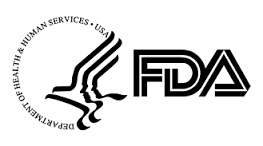North Korean hackers extort hospitals to fund attacks on US government

Editor's Note North Korean hackers targeted U.S. hospitals and healthcare systems with ransomware to fund a covert information exfiltration campaign against American military and scientific entities, according to a July 25 report from CBS News. The first attack was a May 2021 ransomware infiltration of a hospital in Kansas. The…
Less-invasive anesthesia technique improves pediatric surgery safety, patient experience

Editor's Note A needle-based technique that blocks sensory and motor function below the chest without intubation or general anesthesia makes surgery safer for pediatric patients, according to a July 15 report in Michigan Medicine. The University of Michigan's pediatric spinal anesthesia program, also implemented at University of Michigan-Sparrow Health Center,…
Physician survey illuminates negative impact of prior authorization

Editor's Note The American Medical Association (AMA) annual, nationwide prior authorization survey reveals that over 90% of physicians believe prior authorization negatively impacts patient clinical outcomes. “More telling,” AMA reported July 17, is the fact that 78% of physicians report that this process “sometimes or often” leads to patients abandoning…
One expert concerned over drug shortages record high

Editor's Note Erin Fox, senior pharmacy director at University of Utah Health who has been monitoring drug shortages for over 20 years, spoke to AP News in June of her concerns. Currently, the situation is worse than ever, with total active shortages hitting an all-time high of 323 (with 48…
High-flow oxygen deemed safe for pediatric tubeless airway surgery

Editor's Note New findings show that compared to standard anesthetic methods, a new high-flow oxygen technique is just as safe as during tubeless upper airway surgery in children. Published in The Lancet Respiratory Medicine, the University of Queensland research-- the High-Flow Oxygen for Children's Airway Surgery (HAMSTER) trial—was the focus of…
Risks of animal-to-human disease jump remain high despite pandemic lessons

Editor's Note New findings highlight an urgent need to improve preventive measures against animal-borne diseases jumping to humans and potentially causing another global pandemic, US Today reported on July 21. The article details a study from Harvard Law School and New York University that examined animal-human interactions in 15 countries,…
Mass Brigham cancels surgeries amid worldwide tech outage

Editor's Note A global Microsoft server outage disrupting critical services from airline operations to banking is also having a significant impact on healthcare, according to multiple news reports. On example is a Friday, July 19 report from CBS News reporting that Mass General Brigham, the largest health care system in…
US News & World Report updates ‘Best Hospital’ ranking methodology

Editor's Note The latest "Best Hospitals" rankings from U.S. News & World Report have been released with significant updates to methodology in response to recent controversies. MedPage Today reported the news July 16. Among the chief changes this year is the inclusion of Medicare Advantage data in the rankings, a…
FDA: Ventilator death, injury reports lower than initially reported

Editor's Note: Problems with Philips’ BiPap V30, BiPAP A30, BiPAP A40 ventilators resulted in only 7 recorded deaths and 10 injuries—far fewer than the 65 deaths and 952 injuries initially reported by the US Food and Drug Administration (FDA). In a July 10 update to the class 1 recall—the most…
Voice-restoring larynx transplant shows progress for rare cancer treatment

Editor's Note A Massachusetts man, Marty Kedian, regained his voice after a pioneering larynx transplant at the Mayo Clinic in Arizona, The Associated Press (AP) reported July 9. According to the article, Kedian is only the third person in the U.S. to receive a total larynx transplant and the first…

 Free Daily News
Free Daily News